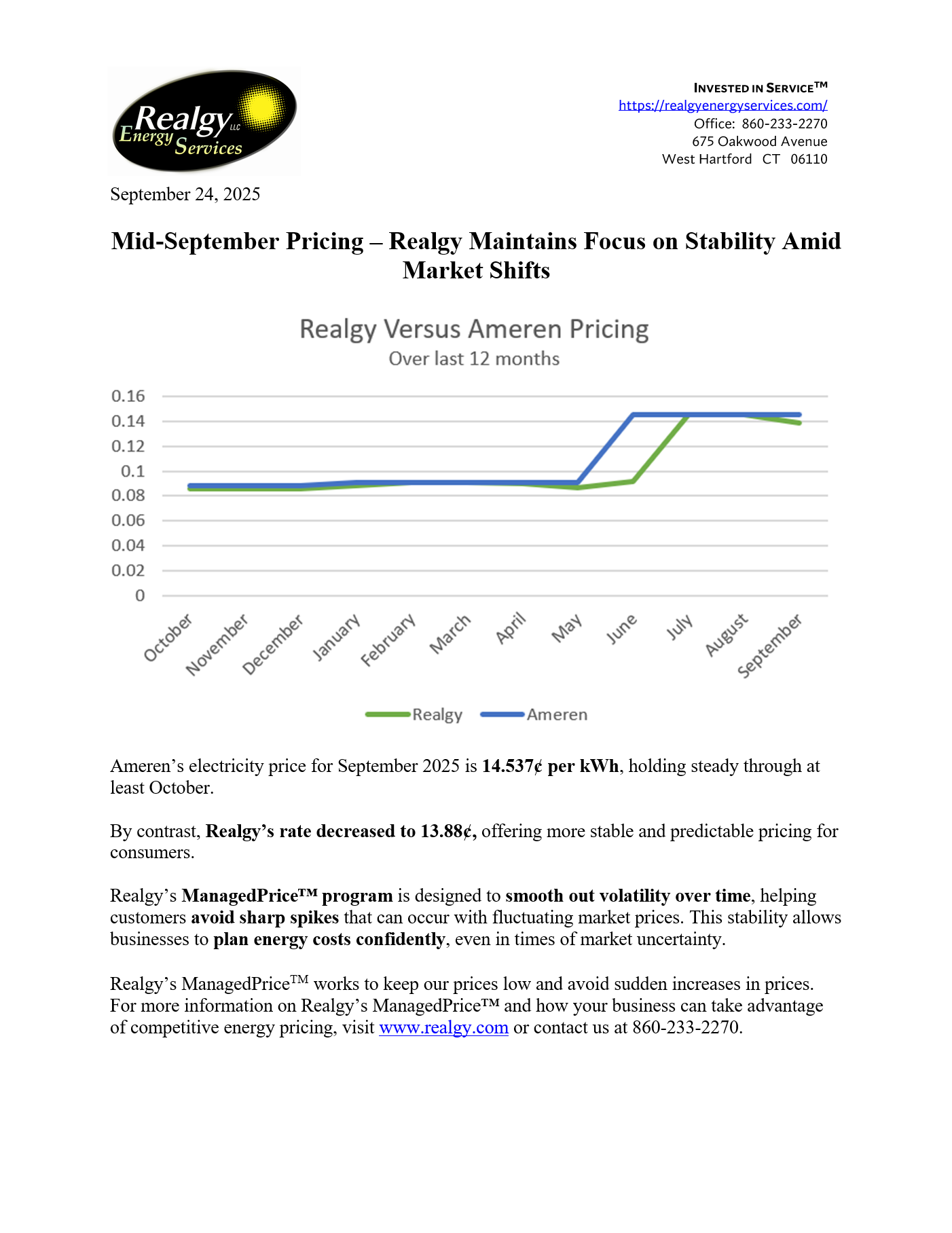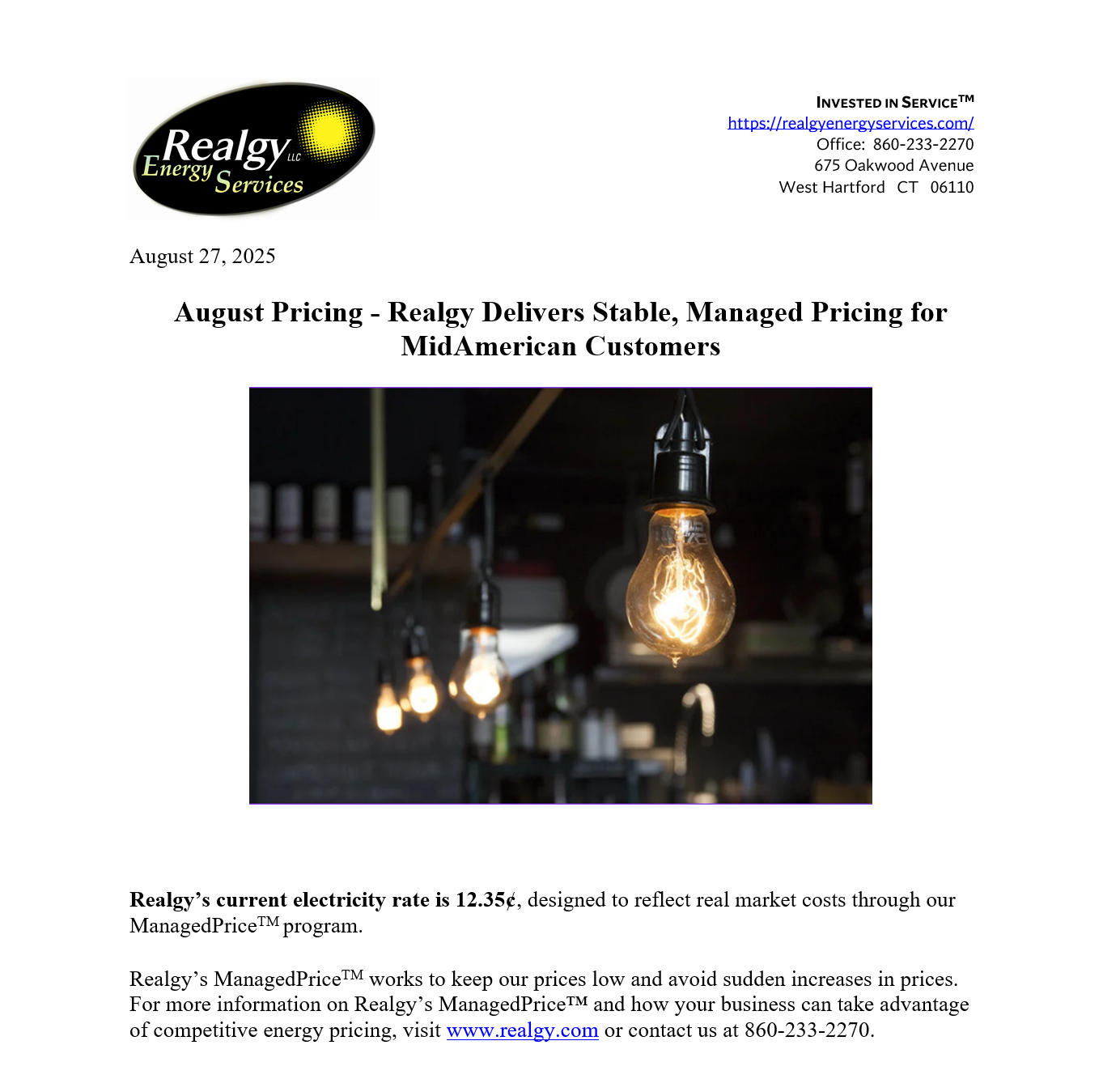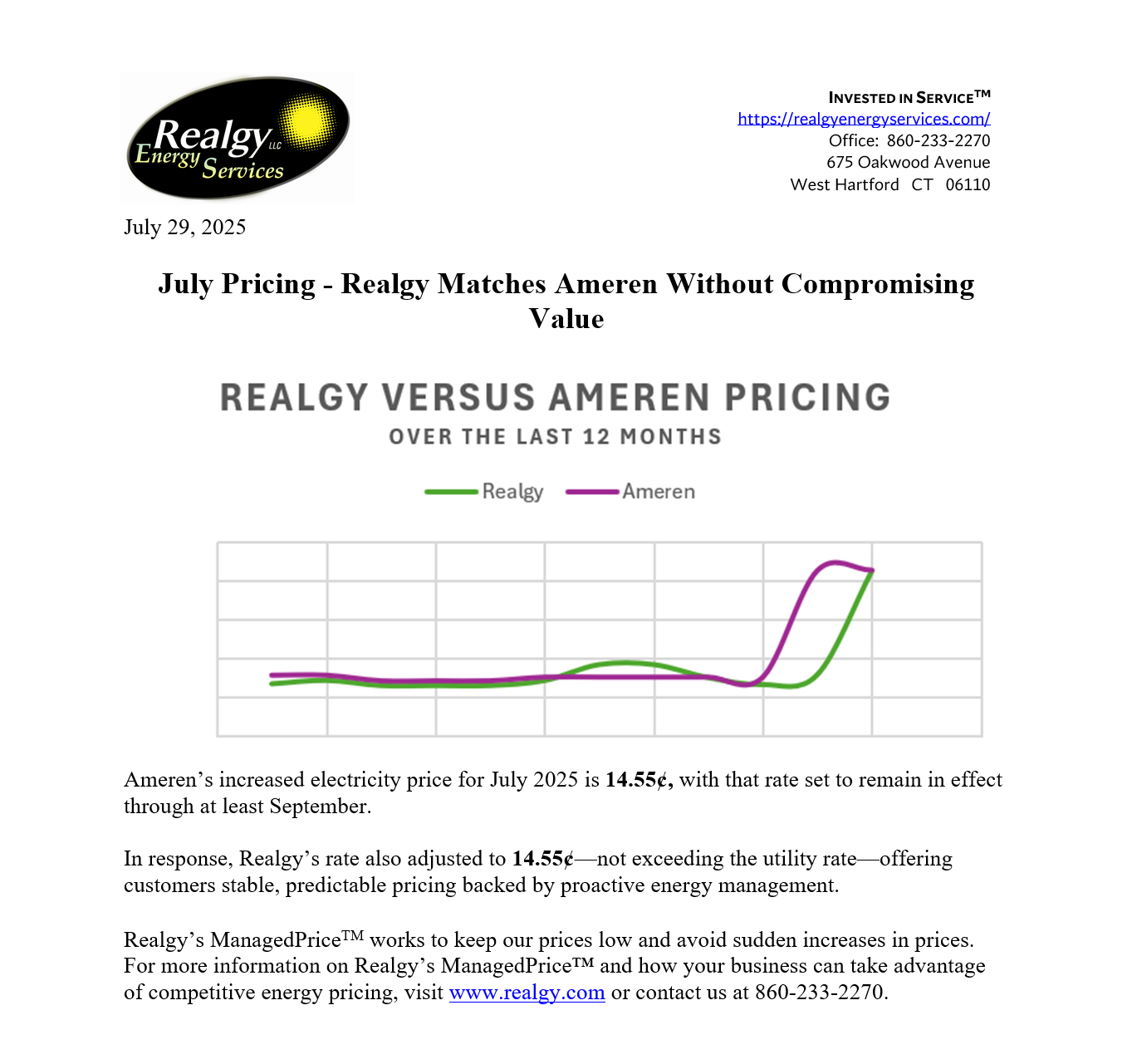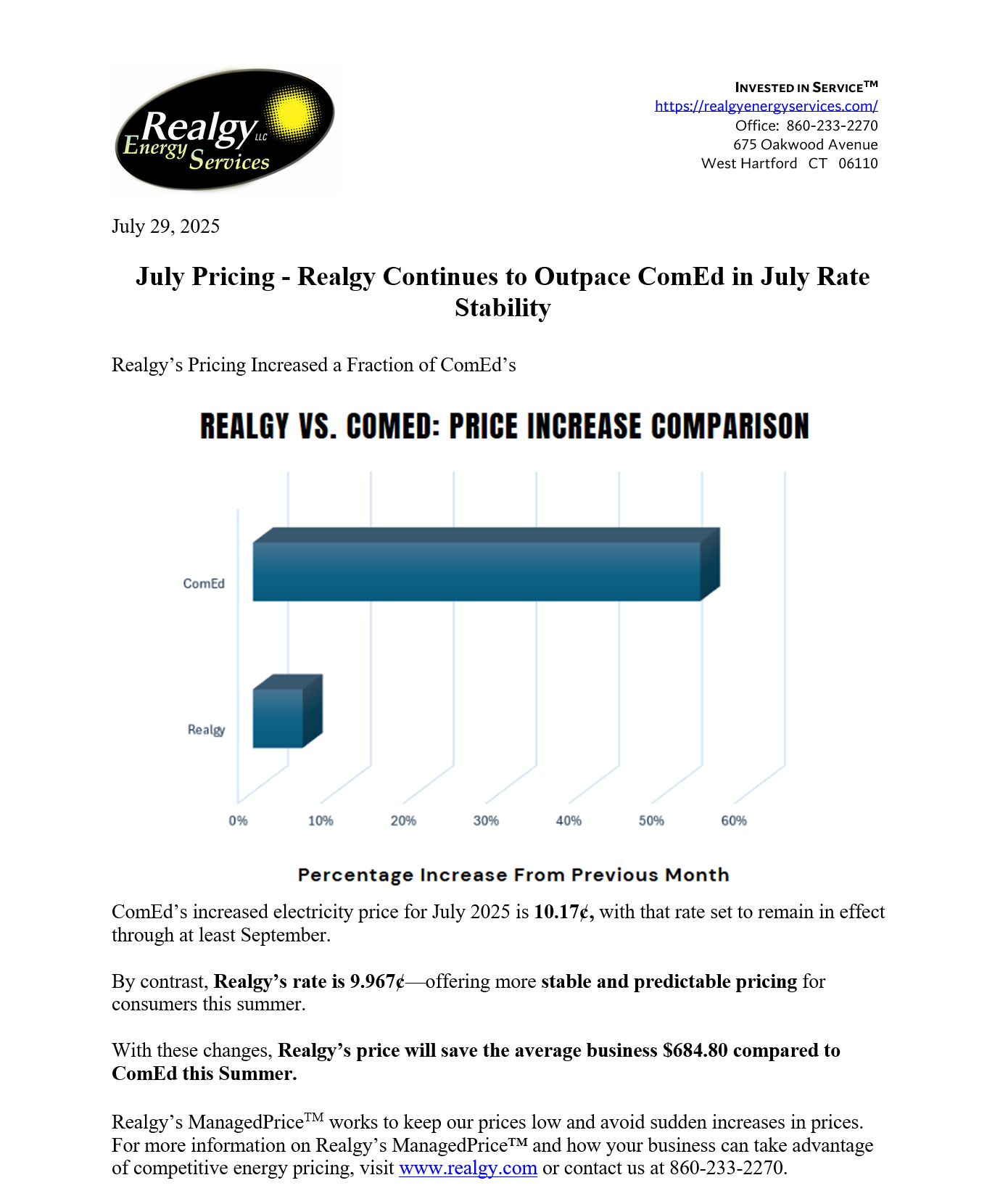
Capitalism Will Win Over Government Intervention.
CAPITALism
In theory, markets (demand for a product along with price, service, and convenience) set the price. To operate efficiently, competition is required. Few markets face more competition than the power markets in the US.
Recently, the government has interfered with not only the theory, but the practice, of power markets. Examples include requiring certain power plants to continue to operate, requiring certain customers to receive wholesale power rates, or casting aside environmental or societal benefits to favor a different fuel.
However, as has been said, capitalism is the most powerful force ever unleashed.
In this current example, the government has dictated that coal plants continue to operate instead of retiring as planned. The result: power prices are staying high, and the expense of continued operation of these decrepit facilities is adding to electric price inflation. No investment is being made in them, rather just short-term fixes to meet the government demand to keep them operating.
Being displaced, as electric demand is being met by the coal plants, are numerous built and planned power plants that could operate at lower cost and with lower environmental impact (which is a cost).
The companies operating these coal plants are not confused. They understand it is a political action, which too shall pass.
Capitalism will win.
Realgy Energy Services is a registered Retail Energy Marketer serving commercial customers in the states of Illinois and Indiana. We offer Service Plans that provide electric and natural gas at wholesale pricing directly to customers without any utility markup. Our Service Plans work with the local utility to provide seamless service and annual energy savings. Service Plans include Guaranteed Savings™, ManagedPrice™, ManagedGreen™ Index, Fixed, and PriceAssurance™.
Realgy owns and operates 11 solar plants in Illinois and is looking to invest in additional locations. Soon to be 12 with the inclusion of Highland Park’s newest recreation center, West Ridge Center,- New Community Recreation Facility Coming in 2026 | Park District of Highland Park
Additional Information:
Trump is keeping coal on life support. How long can it last? | Grist

Virginia Case for Adding New Generation Today
How to Reconcile So Many Different Messages
Over 10 years a consensus has been reached that recognized:
• The climate crisis will cause the Earth’s temperature to rise 2.5 degrees within the next decade.
• Fossil fuel usage is a primary contributor to climate change.
• Federal and States issued laws created incentives to curtail fossil fuel use.
• Solar and wind power, which COST LESS than fossil fuels, are permitted and are currently under construction.
And now, science, costs, and climate concerns are being dismissed and replaced instead by opinions.
Consider:
Virginia passed a law phasing out fossil fuels out by 2045. The state has already incurred billions in costs tied to climate change. New construction and proposed solar and wind power plants were forecasted to meet rising demand and nuclear power was encouraged.
To capture additional business from AI data centers, Virginia is forecasting even greater energy demand. Consider the impact of NVDIA’s chip production for next year was 9% of the total US energy demand for 2024; Read More.
Instead of complying with law, Virginia’s largest utility is asking permission to build 944 MWs of natural gas fired generators.
Regulators reviewing the request concluded:
- The “cold snap” weather event used to justify construction was “unpersuasive”.
- Power exports to neighboring states continued during the “cold snap”.
- Load growth was within generation capabilities of existing power generation.
- Economically, construction of natural gas generation would increase electric costs for customers.
- No alternatives were offered.
Today’s politics are undoing more than a decade of scientific, economic, and environmental progress.
10 years from now, when these politicians are long gone, this decision (and those like it) will be costly and will be deemed wasteful and will bring us closer to environmental harm.
Realgy Energy Services is a registered Retail Energy Marketer serving commercial customers in the states of Illinois, and Indiana. We offer Service Plans that will provide electric and natural gas at wholesale pricing direct to customers without any utility markup. Our Service Plans work with the local utility to provide seamless service and annual energy savings. Service Plans include Guaranteed SavingsTM, ManagedPriceTM, ManagedGreenTM Index, Fixed and PriceAssuranceTM.
Realgy owns and operates 11 solar plants in Illinois and is looking to invest in additional locations. Soon to be 12 with the inclusion of Highland Park newest recreation center West Ridge Center – New Community Recreation Facility Coming in 2026 | Park District of Highland Park
Additional Reading:
Virginia’s data center boom tests clean energy law | Canary Media









